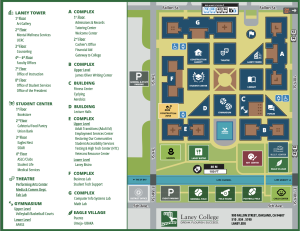The Computer Information Systems (CIS) Department provides students with the computer skills necessary to find employment and the analytic and technical knowledge necessary to progress to four-year institutions. We offer courses in computer programming languages and systems that are transferable and articulated with UC and CSU schools (check with www.assist.org for more information). Also offered are technical courses and programs that are in high-demand areas of software and systems design, development and applications.
Through ongoing discussion and analysis, a multi-path technical preparation program in Computer Information Systems has been developed which meets industry standards for technical support personnel and academic pursuits.
Five major options are available. For each, students must complete the Core Curriculum as well as courses listed under each option.
Computer Information Systems Career Options
A career in Computer Information Systems (CIS) offers a wide range of options, as it encompasses the intersection of computer science and business. CIS professionals play a crucial role in organizations by managing and leveraging technology to meet business objectives. Here are some common career options within the field of Computer Information Systems:
- Systems Analyst: Systems analysts bridge the gap between business needs and technology solutions. They work to understand an organization's requirements and design information systems to meet those needs. This role involves a lot of problem-solving and communication.
- Database Administrator: Database administrators are responsible for the design, maintenance, and security of an organization's databases. They ensure that data is organized, accessible, and secure. This role often involves working with database management systems like MySQL, Oracle, or SQL Server.
- Network Administrator: Network administrators manage an organization's network infrastructure, including servers, routers, switches, and security protocols. They ensure that data can flow smoothly and securely between devices within an organization.
- Cybersecurity Analyst/Information Security Analyst: In an increasingly digital world, the need for professionals who can protect an organization's information and data from cyber threats is growing. Cybersecurity analysts focus on identifying vulnerabilities and implementing security measures to safeguard against attacks.
- Software Developer/Engineer: Software developers create, test, and maintain software applications that can help organizations streamline their processes or serve their customers. They work with programming languages like Java, Python, C++, and more.
- Web Developer: Web developers specialize in building and maintaining websites and web applications. They work with web technologies such as HTML, CSS, JavaScript, and various web development frameworks.
- Business Intelligence Analyst: Business Intelligence (BI) analysts use data analysis tools and techniques to gather insights and help organizations make data-driven decisions. They often work with tools like Tableau, Power BI, or SQL for data visualization and analysis.
- IT Project Manager: IT project managers are responsible for planning, executing, and overseeing technology projects within an organization. They ensure that projects are completed on time and within budget while meeting their objectives.
- IT Consultant: IT consultants provide expertise to organizations on various technology-related matters. They often work as external advisors, helping companies make informed decisions about their IT strategies, systems, and processes.
- Cloud Solutions Architect: With the increasing adoption of cloud computing, cloud solutions architects design and implement cloud-based infrastructure and applications. They work with platforms like Amazon Web Services (AWS), Microsoft Azure, and Google Cloud Platform.
- IT Support Specialist: IT support specialists provide technical assistance to end-users within an organization. They troubleshoot and resolve hardware and software issues and ensure that employees have the technology tools they need to work effectively.
- Health Information Manager: In the healthcare sector, health information managers are responsible for managing and securing patient data and ensuring that electronic health records (EHRs) are accurate and compliant with regulations.
- Education Technology Specialist: In the field of education, technology specialists help schools and educational institutions integrate technology into their curriculum and manage educational software and hardware.
These are just a few examples of career options within Computer Information Systems. The specific job titles and responsibilities may vary based on the organization, industry, and evolving technology trends. It's essential to continuously update your skills and stay informed about emerging technologies to excel in this field.










